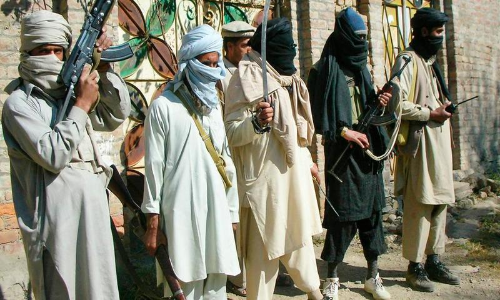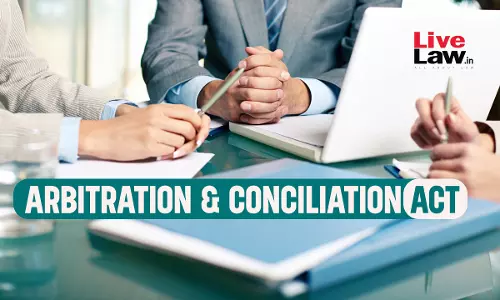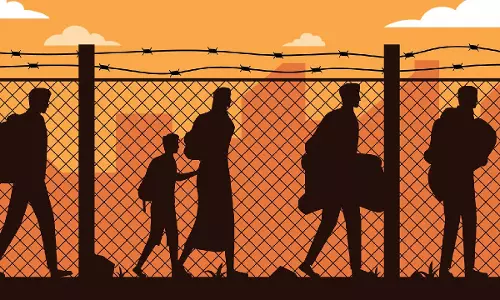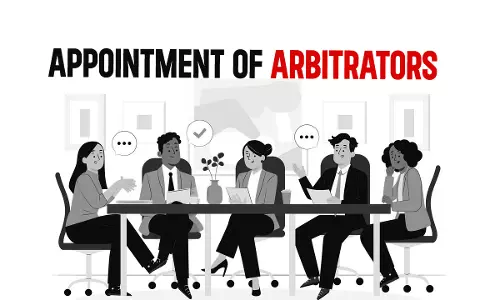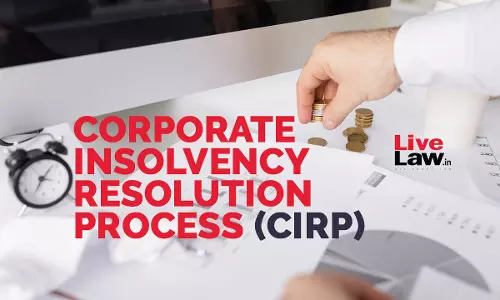Law School Articles
Share Application Money Can't Be Treated As Financial Debt
The NCLT in the judgment of Rajeev Kumar Jain vs Uno Minda Limited Formerly, defined financial debt, as to entail debt plus interest, if any. The understanding between the parties is important and relevant to determine the existence of the time value of money, which can take many forms other than the simple payment of interest. This means that interest is not a necessary condition, so the corporate debtor may or may not be required to pay interest. The NCLAT noted that the phrase "disbursement...
Navigating The Neo-Banking Wave: Insights Into India's Digital Financial Future
The novel point of neobanks is that they operate sans physical branches, utilizing dynamic business models and upscale technological tools to improve customers' ease of use, transparency, and service efficiency. The concept of neo-banking emerged in the UK and Germany in 2013 and 2015. It is disputed over when the neo-banks entered the Indian market. Key players like NIYO[1] and PayQ[2] claim to be the initial neobank in the industry. Irrespective of the first entrant, the neo- banking sector in...
Additional Documents In Commercial Suits: How Order XIIIA Circumvents The Bar Created By Order XI
Order XI of the Civil Procedure Code, 1908 (the “CPC”) as applicable to commercial disputes defined under the Commercial Courts Act 2015 (the “2015 Act”), imposes stringent conditions on the disclosure and production of documents. Unlike ordinary civil suits, parties in commercial suits must disclose all documents within their control and provide a declaration on oath regarding the completeness of this disclosure at the time of filing of the plaint. Introducing additional documents after...
Arbitral Award, Is It Unchallengeable?
The Arbitration and Conciliation Act, 1996 regulates arbitration in India and deals with the arbitration procedure. Arbitration is the process of solving disputes outside the walls of the judicial system. According to this Act, an arbitral award determines the issues in controversy made by the arbitral tribunal. Thus, it has adopted the UNCITRAL (United Nations Commission on International Trade Law) Model Law on International Commercial Arbitration to enforce the arbitral awards ...
Balancing Public Order And Free Speech: Analyzing Section 153A IPC Through Javed Ahmad Hajam V. State Of Maharashtra
Freedom of speech is one of the hallmark rights conferred upon Indian citizens. One could even go on to state that it is one of the cornerstones of India's continued existence as a democratic nation. However, this right under Art. 19 (1) (a) of the Indian Constitution, has been under siege since its very inception. Even today, situations do arise wherein this right has been attempted to be curbed by misusing legislation like Section 124A, 153A, and 505 of the IPC among others. This...
Taliban's Draconian Morality Law: Suppression Of Women's Rights In Afghanistan
The "Draconian Morality Law," which was just passed by the Taliban administration in Afghanistan, severely limits the rights and voices of women. Severe limitations are imposed by these norms, which forbid women from speaking out in public, demand that their faces be covered at all times, and forbid them from exposing their features. This ordinance represents the first official proclamation of "vice and virtue" laws under the new Taliban administration.The majority of the 35 pieces in this over...
Emergency Arbitration And Section 9: A Comparative Analysis Of Interim Relief Mechanisms In Indian Arbitration Post-2015 Amendments
The Arbitration and Conciliation Act of 1996 is considered a revolutionary piece of legislation for regulating arbitration in India. One of the major features of this Act is Section 9, which allows Indian courts to provide interim measures of protection either before the initiation of the arbitral process, concurrently with its progress, or after receiving the award but before enforcing it. Such measures are essential when the subject matter of the dispute requires protection or where the...
Harnessing Mediation For Effective Resolution Of Intellectual Property Rights Conflicts
Disputes are an inevitable aspect of human life, spanning from family matters to commercial relationships. Effective resolution of these disputes is crucial, yet conventional litigation often involves significant delays, technicalities, and high expenses. As William Edward Gladstone aptly noted, “Justice delayed is Justice denied.” The shortcomings of traditional litigation have paved the way for a modern alternative: Alternative Dispute Resolution (ADR). Among ADR methods, mediation...
Asylum And Human Rights: Non-Refoulment, The Right To Life And Prohibition Of Ill-Treatment
“Protecting the refugees' rights and dignity is not an option; it is a moral and legal obligation. We must ensure that every refugee is treated with the respect and humanity they deserve.”[1] Imagine a person reading this article, only to be abruptly jolted by the sounds of gunfire and explosions in the very neighborhood he called home. Along with his wife and son, he is forced to flee, leaving behind all their possessions—without clothes, money, food, or any resources. They are...
Rebooting Justice: Technology As A Catalyst For Change In The Legal System
The Indian legal system plays a vital role in ensuring justice, but it's facing serious problems that make it hard for people to trust and access it. One of the biggest issues is the enormous backlog of cases. As of 2024, about 3.5 million cases are still stuck in the courts, waiting to be resolved. This backlog has built up over time because there simply aren't enough judges, and the legal process is slow and often complicated. These delays hit poorer and marginalized communities the hardest,...
Setting The Clock: Proposing A Limitation Period For An Application To Appoint Arbitrators
Arbitration is designed to be a fast and efficient alternative to litigation, offering a streamlined way to resolve disputes. Yet, this process can be stalled if parties cannot agree on appointing arbitrators. In such cases, the aggrieved party can file an application under Section11(6) of the Arbitration and Conciliation Act, 1996 (“the Act”) before the relevant Court to appoint arbitrators, ensuring proceedings are not unduly delayed. This paper analyses the question: “How long can the...
A Study On Inherent Power Of NCLT To Recall CIRP
The purpose of Courts is to dispense justice which necessarily means both timely justice and quality justice. The interest of every party has to be taken care of by the court. However, at certain times procedural errors might take place, that need to be rectified, otherwise the whole proceeding will get vitiated.[1] For so doing, it becomes necessary that every court has the power to rectify the wrongs done in the misbelief of facts. These powers are also needed in such situations where...








